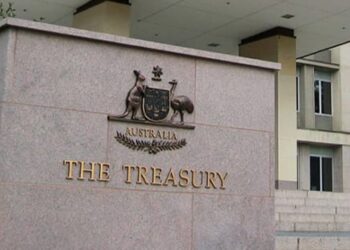Responses to questions on notice from the House economics committee revealed that the regulator had only directly engaged with a small number of funds involved in its Report 639 into financial advice provided by super funds, following the sub-optimal results found in the report.
The report found just 49 per cent of all personal advice provided by super funds was fully compliant with the best interests duty, while 36 per cent of advice files “did not demonstrate full compliance” and a further 15 per cent indicated the member was at risk of financial loss because of the advice provided.
In a previous hearing of the committee, Coalition MP and former adviser Bert van Manen questioned ASIC commissioner Danielle Press around why the report had not “led to major reforms of the super advice sector”, when the regulator’s Report 413 into risk advice, which found a better compliance rate, had led to the LIF reforms.
Mr van Manen’s question on notice to the regulator asked whether a 49 per cent compliance rate “passed the test” for ASIC to take no further action around super advice.
“If so, the ASIC review of life insurance advice delivers a better outcome. Why then would ASIC call for further reforms to life insurance commissions?” Mr van Manen asked.
In response, ASIC said its response to Report 639 had been “commensurate with the concerns identified in that review”.
“While we found that 36 per cent of files did not demonstrate full compliance with the best interests duty and related obligations, this was as a result of procedural, disclosure or record keeping deficiencies and did not indicate the member was at risk of suffering financial or non-financial detriment,” the regulator said.
“A smaller subset of 15 per cent of files indicated that the member was at risk of suffering financial or non-financial detriment.”
ASIC said further regulatory action taken as a result of its industry investigations “depends on the nature and scale of concerns identified”.
“For example, for files reviewed as part of REP 639 where there was an indication that the member was at risk of suffering financial or non-financial detriment, we engaged with the advice licensee about our expectation that they review the advice and where required, remediate those affected members,” ASIC said.
The regulator added that any legislative change as a result of its reports was “a policy matter for government”.




TBH, 49% is much higher than I anticipated
The problem is ASIC don’t really have a clue what good advice looks like until something goes wrong.
This means they can’t write clear guidance that advisers can refer to and the training bodies can teach.
They just nit-pick after the event and in the mean time advisers have to guess what’s required and try to cover themselves with 50 page SoAs.
It’s easy to find fault with anything in life. But it’s impossible to create something perfect.
ASIC just define what you expect and we’ll get on with it !!
If this was advisers we’d be on the front page of the SMH and Jacqui Lambie would be calling for more FoFA reforms.
Time for a royal commission into ASIC!
WTAF? What more proof for what we all know; that ASIC is corrupt, broken and needs to be replaced!!
If this had been planners, they would have acted. If this level of corruption and biased was displayed in any other field or more tellingly, against union super funds, then the broader media would have been baying for blood…
Thanks goodness for Bert van Manen being an MP.
Gotta ensure those intrafund advisers keep pouring money into the Union based funds..lol
two rules – nothing more needs to be stated
Surprised – NOT!
Right – only individual remedies were sought, there were no indications of systematic breaches. All is well, please move on, nothing to see here. What a difference one’s reputation makes.
Gutless!
Could ASIC provide a high level list of Licensees included and the number of files checked for each Licensee?
I see. So the “majority fail” headline that ASIC threw out there to the public is, upon closer examination, not really the case. The number is closer to 15%. 36% of the other cases were due to a box not being ticked.
When are they going to issue a retraction for having made misleading and deceptive statements?
Is it just me or is anyone else getting a bit sick of ASIC’s attitude to our industry?
As one who’s witnessed many ASIC breach notices and banning order/hearing notices sent to Advisers over the years, I think you’ll find that “…the nature and scale of concerns identified” is highly discretionary and depends on the individual Analyst who’s reviewing matters and whether or not they’re trying to meet their quotas/KPIs and climb ASIC’s corporate ladder more quickly than others. It’s wrong. Very wrong. But it’s how it is. At least there are a few politicians who are willing to stand up to the ridiculous red tape and power games of ASIC occasionally.